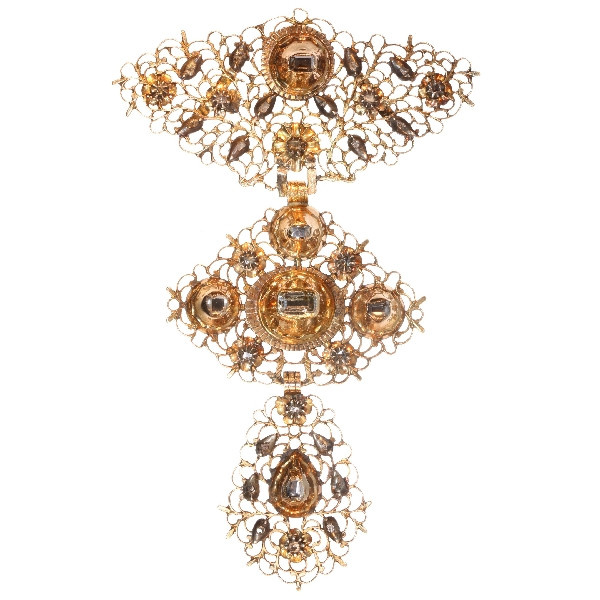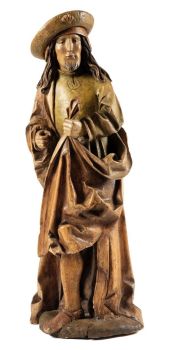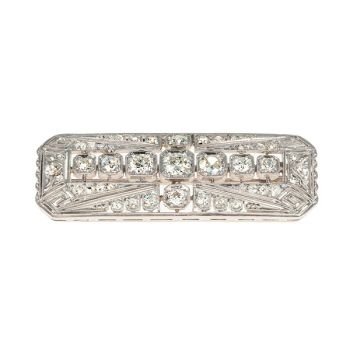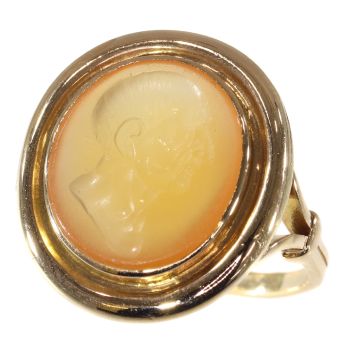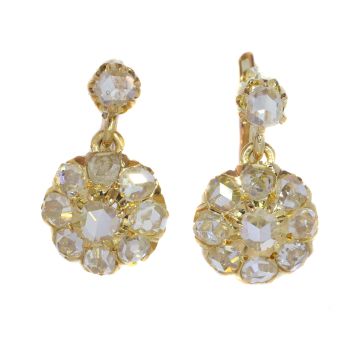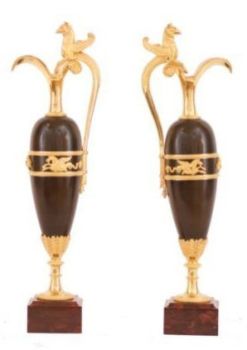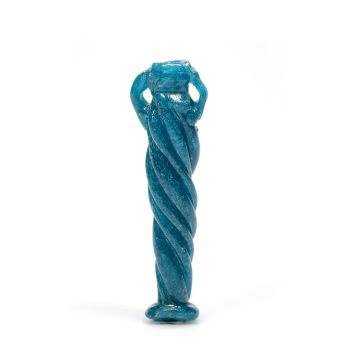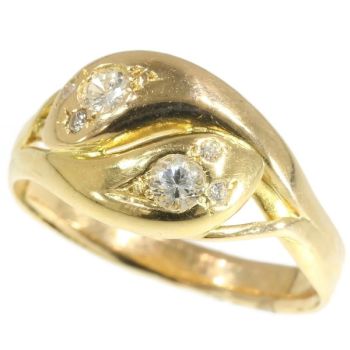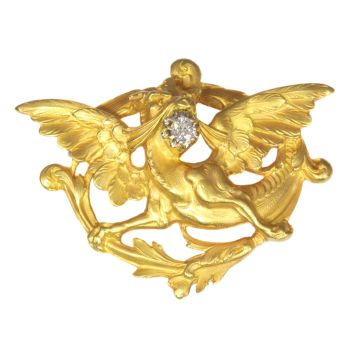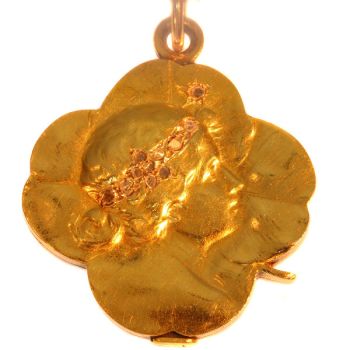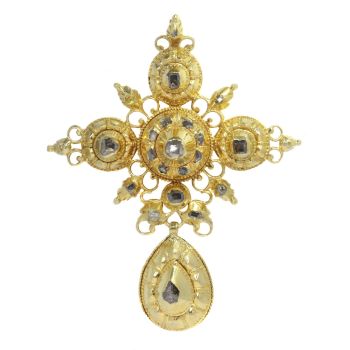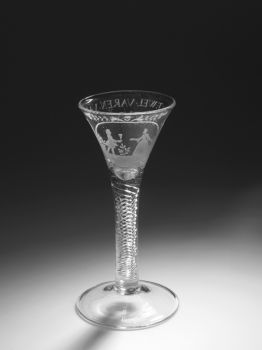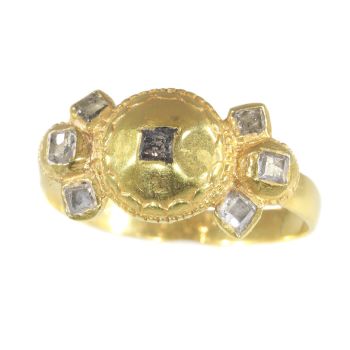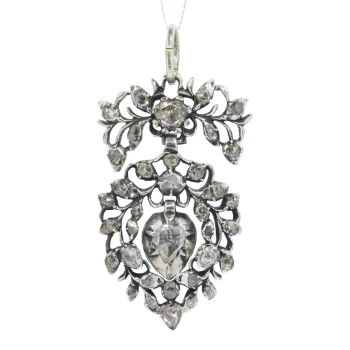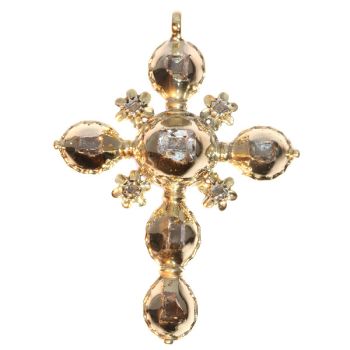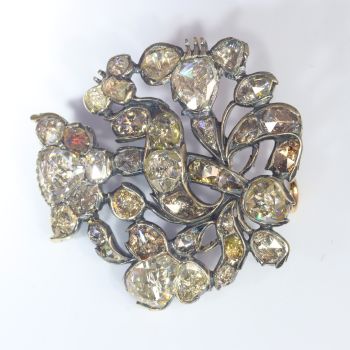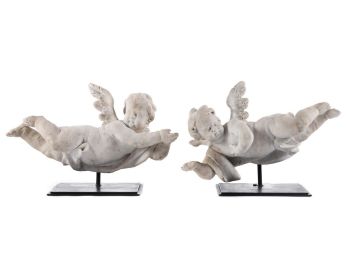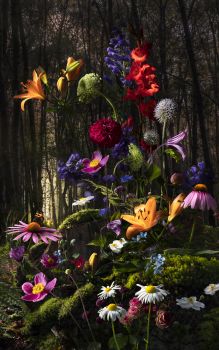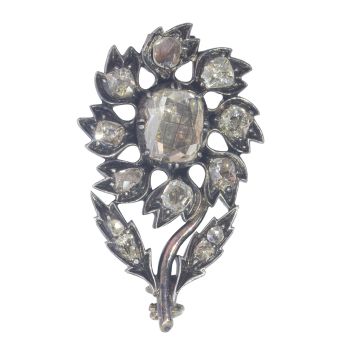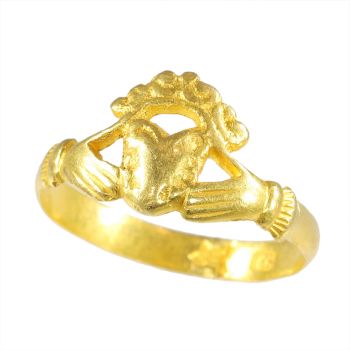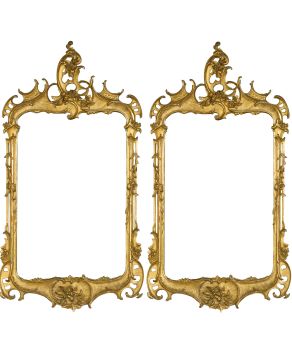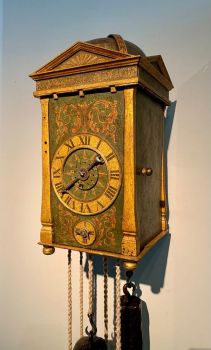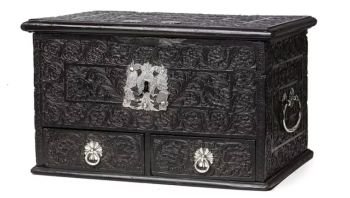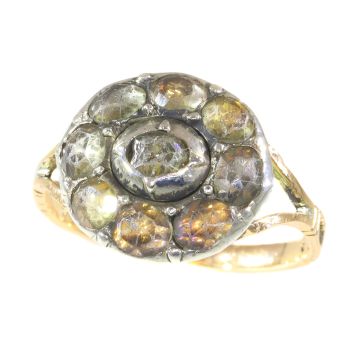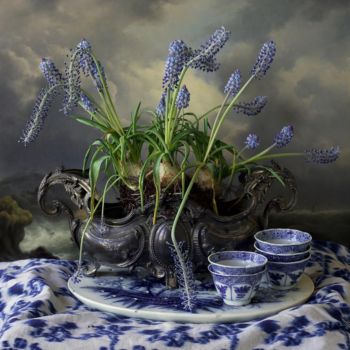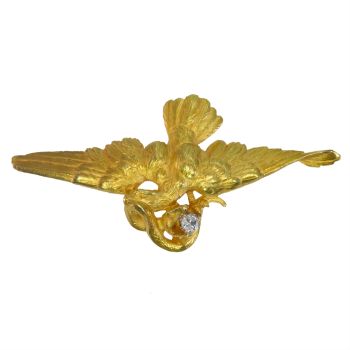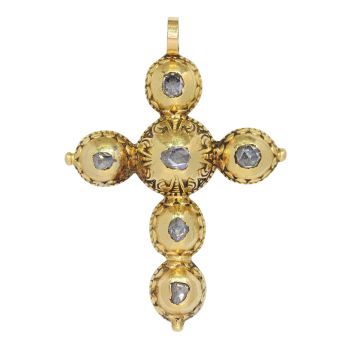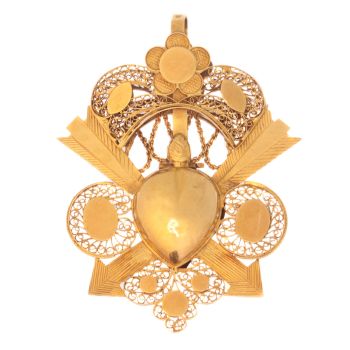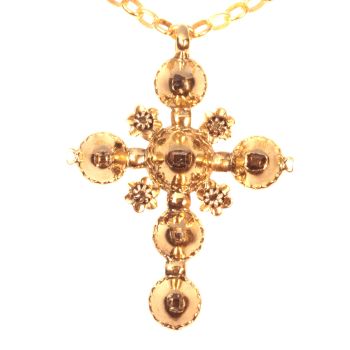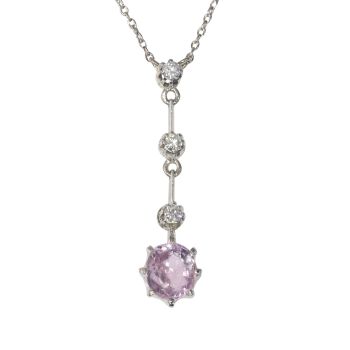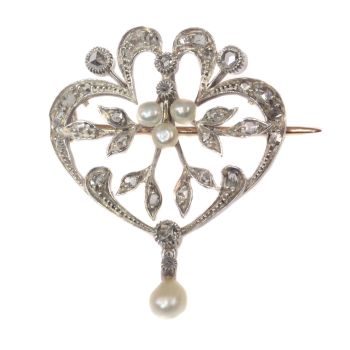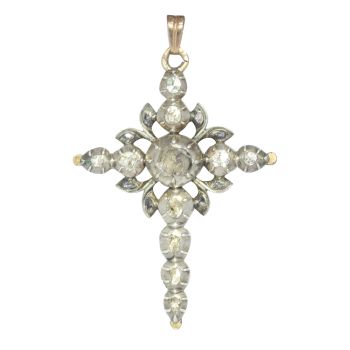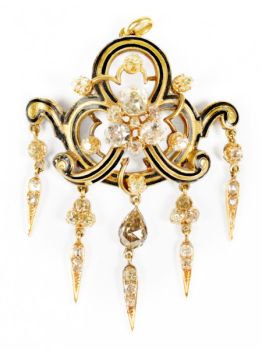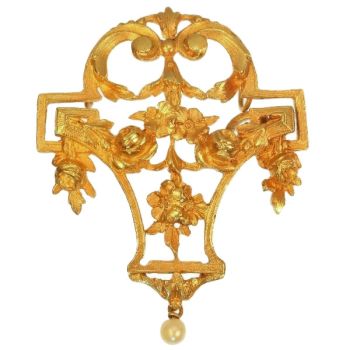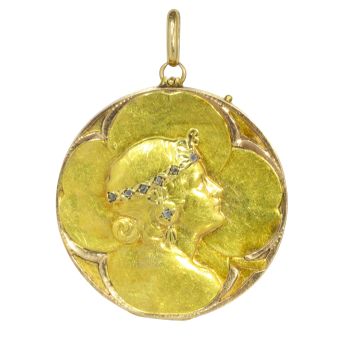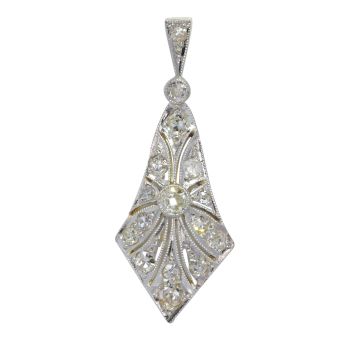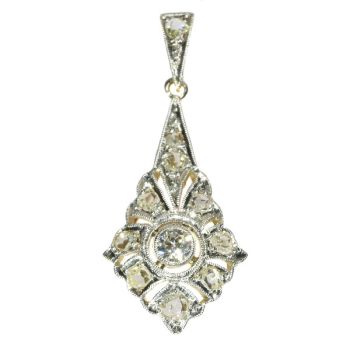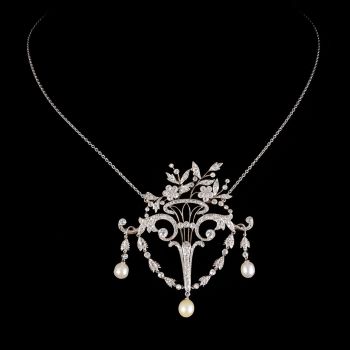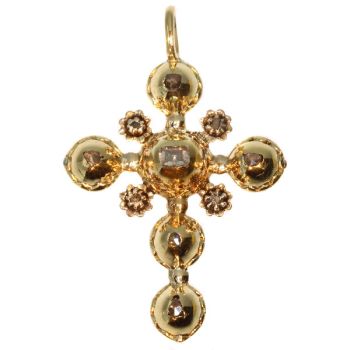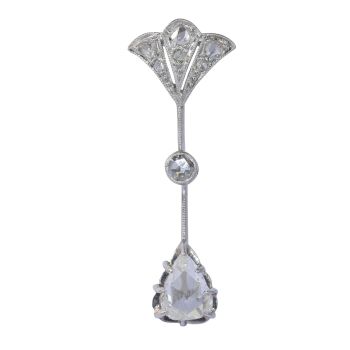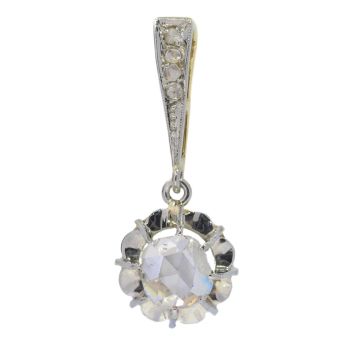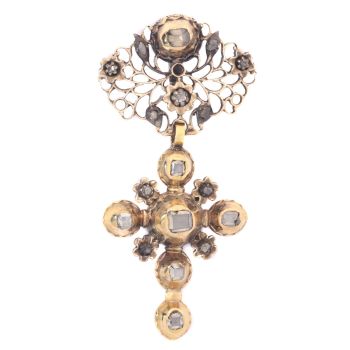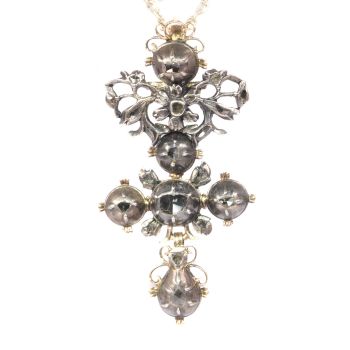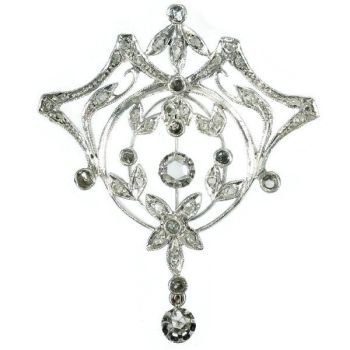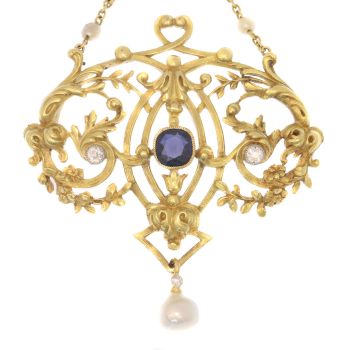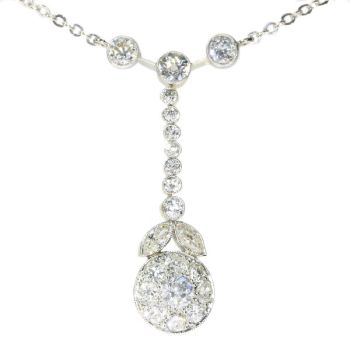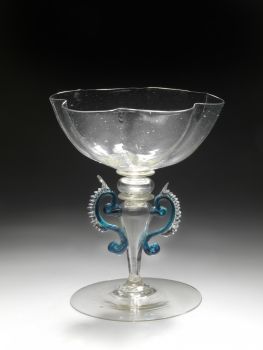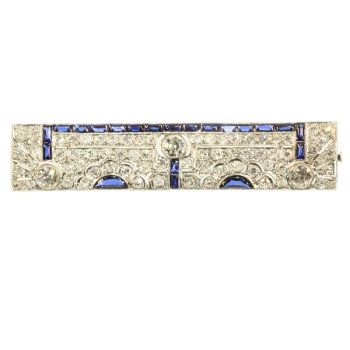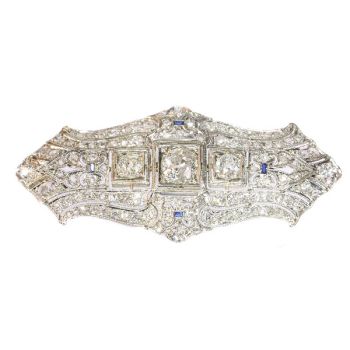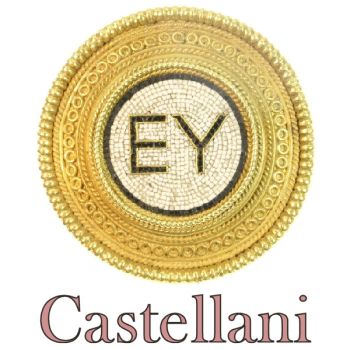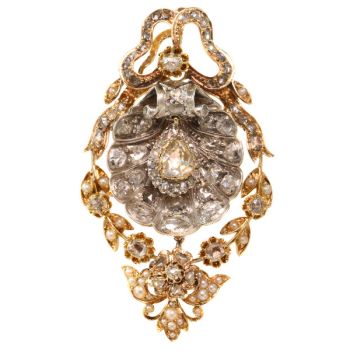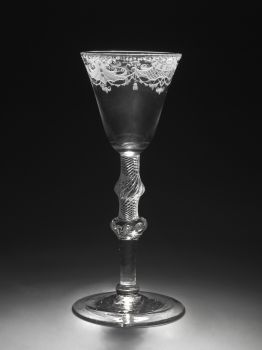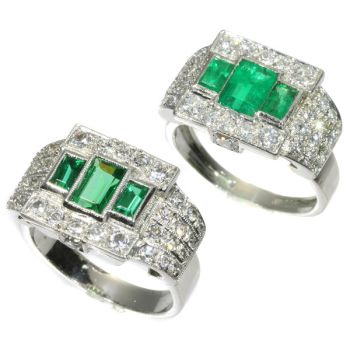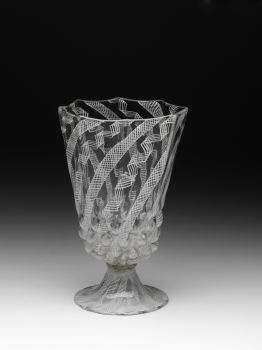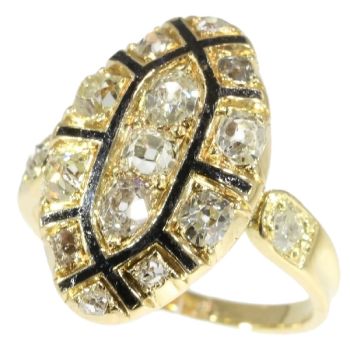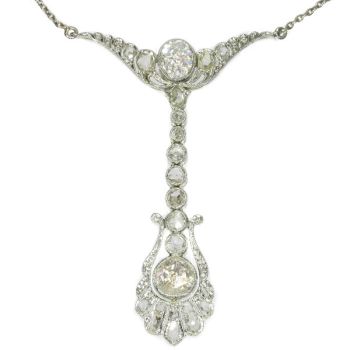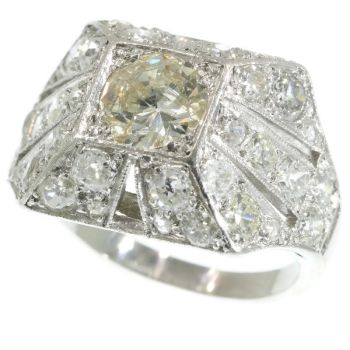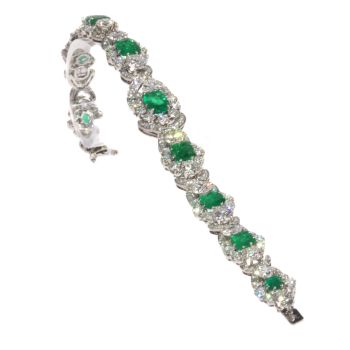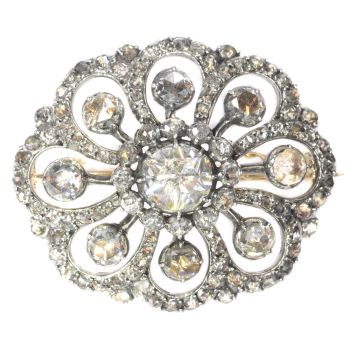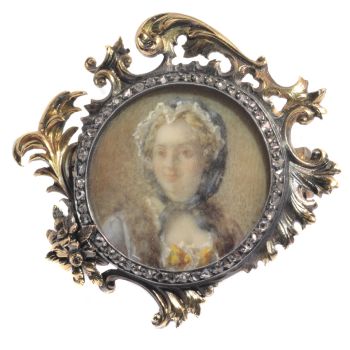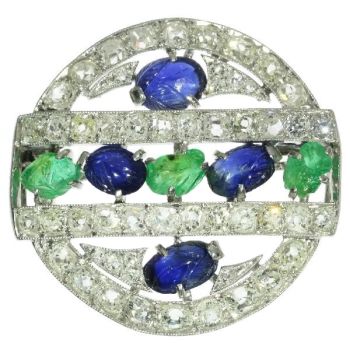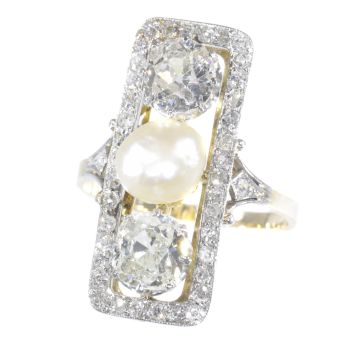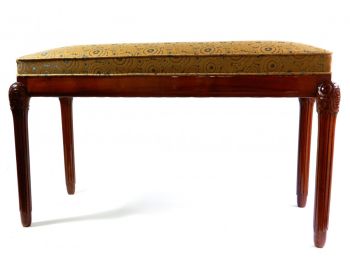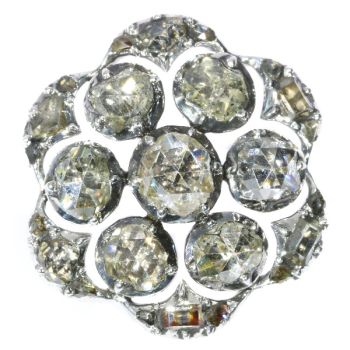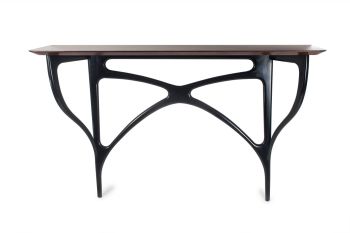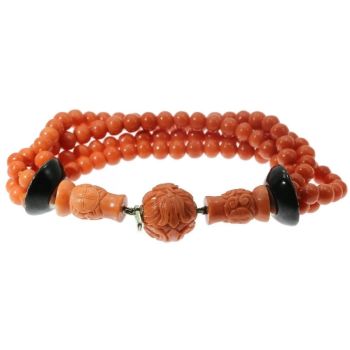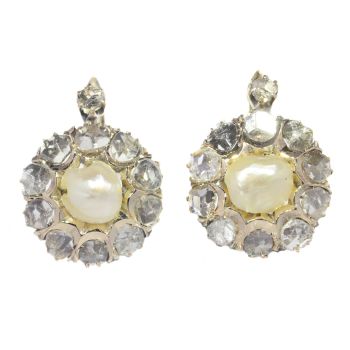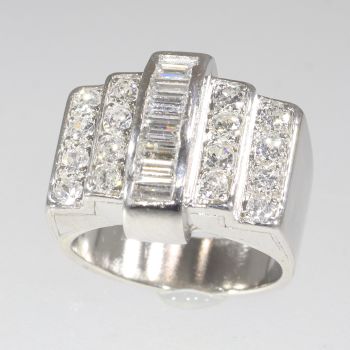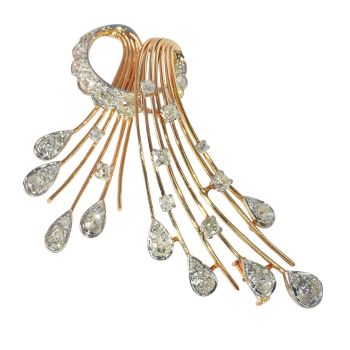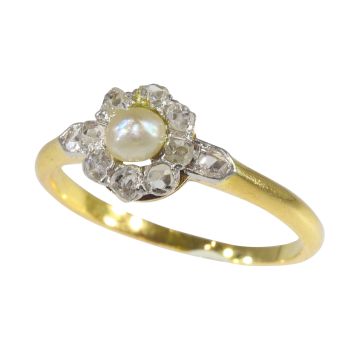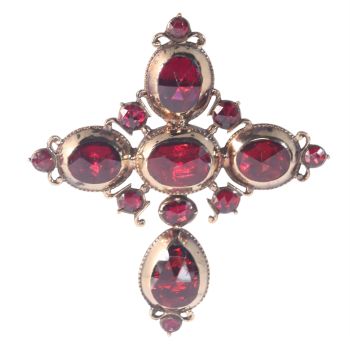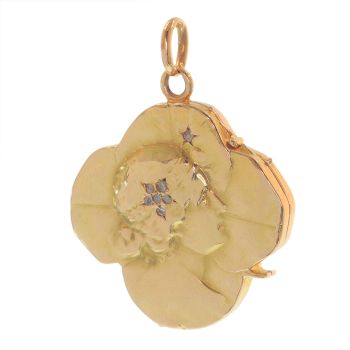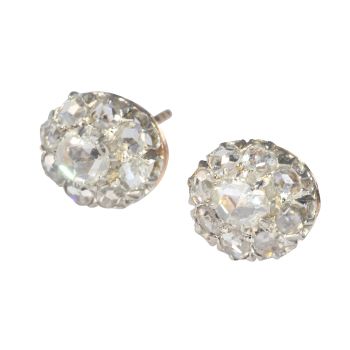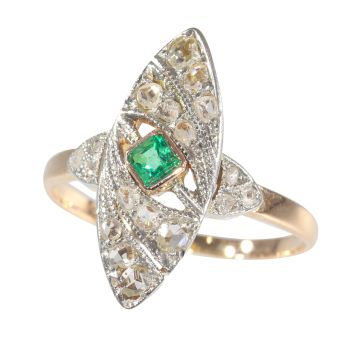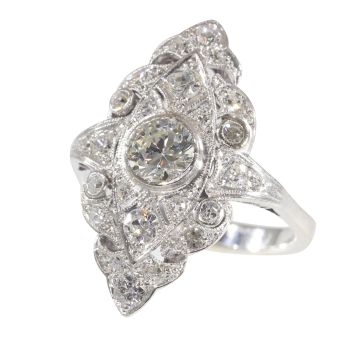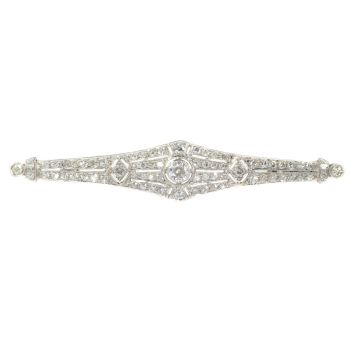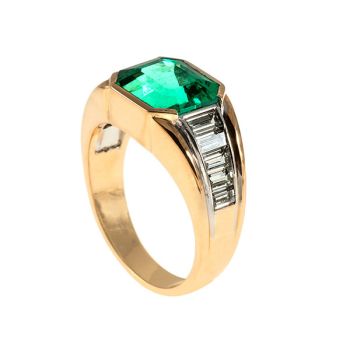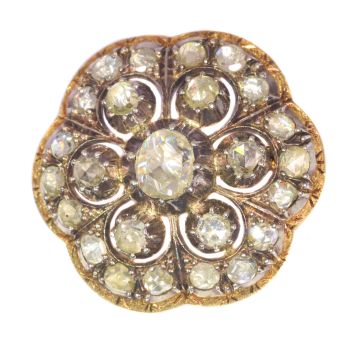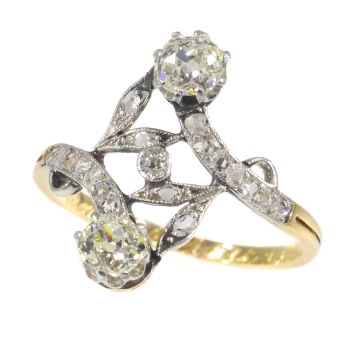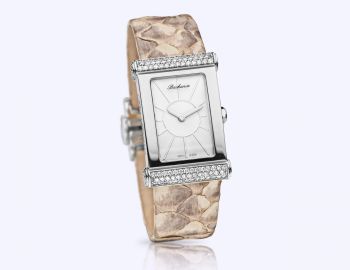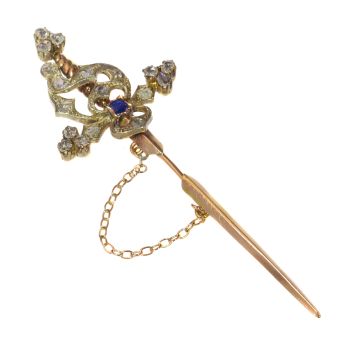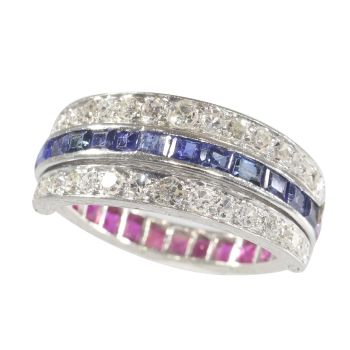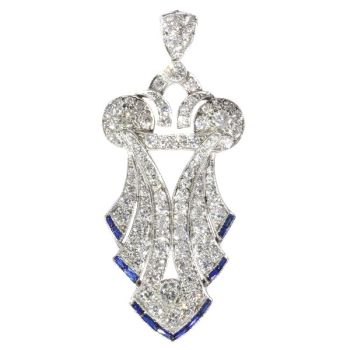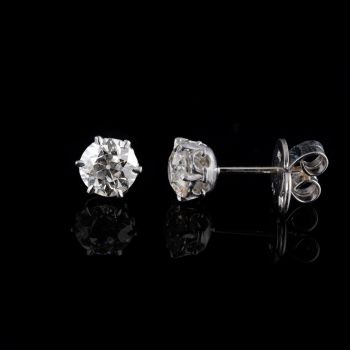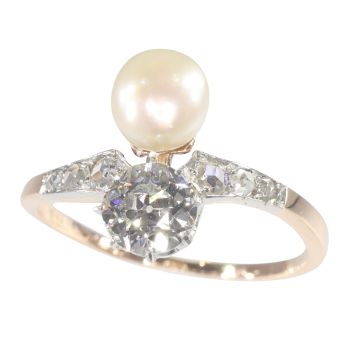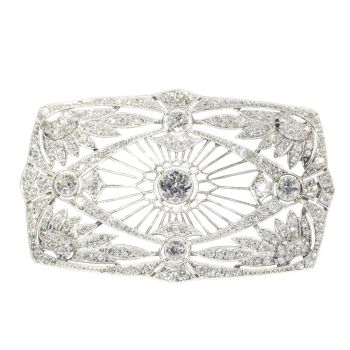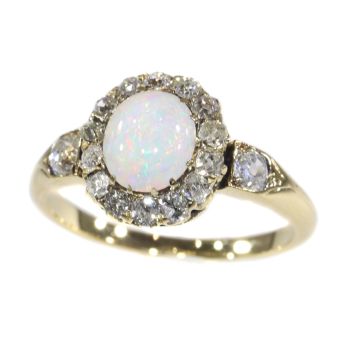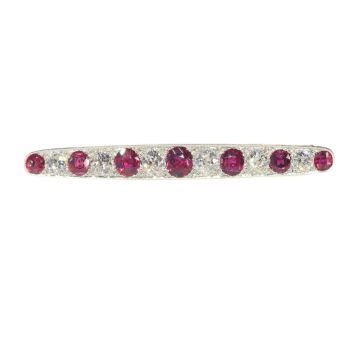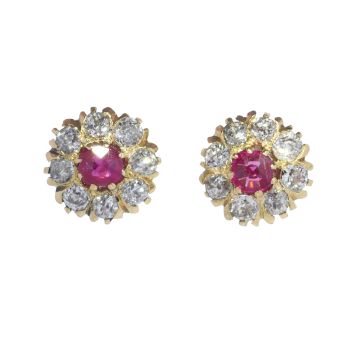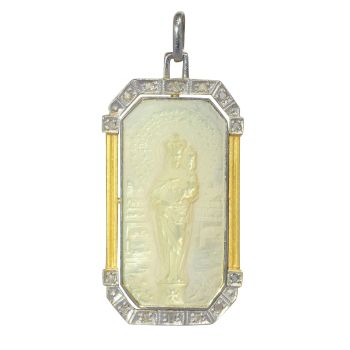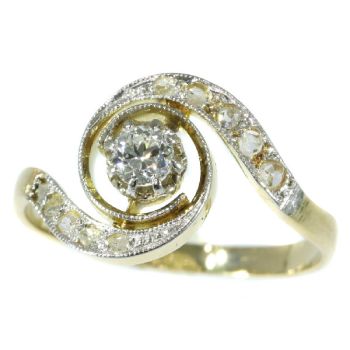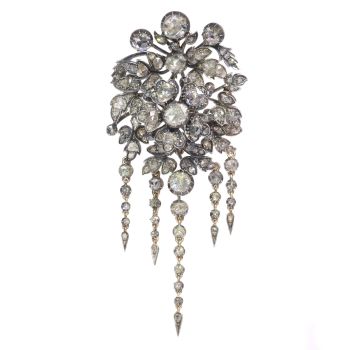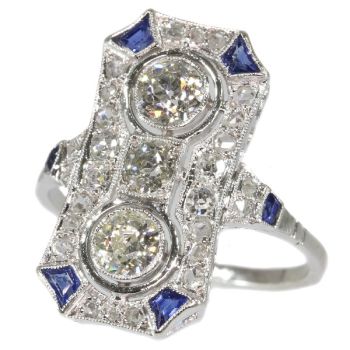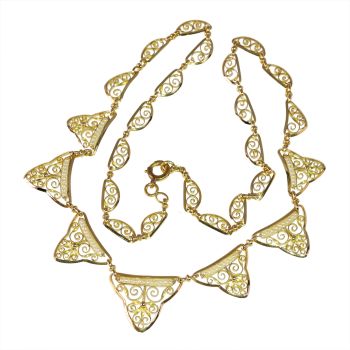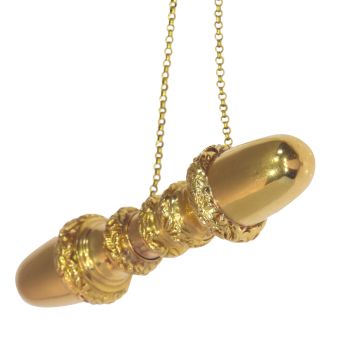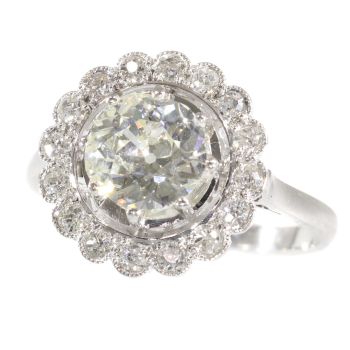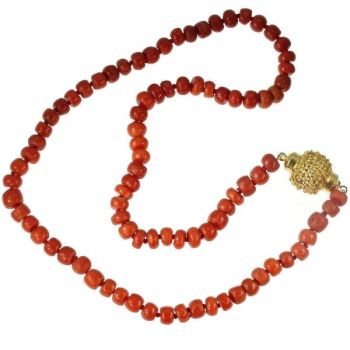Pingente de cruz de ouro filigrana do século 18 chamado A la Jeanette, diamantes de lapidação 1750
Artista Desconhecido
Diamanteouro vermelhoOuroGemstone
€ 7.250
Adin Fine Antique Jewellery
- Sobre arte
Antique jewelry object group: pendant
Condition: very good condition
- (more info on our condition scale)
Country of origin:Although it does not carry any legible control marks we believe this to be of Belgian origin.
Style: Rococo - Rococo (less commonly roccoco) also referred to as "Late Baroque" is an 18th century style which developed as Baroque artists gave up their symmetry and became increasingly more ornate, florid, and playful. Rococo rooms were designed as totalworks of art with elegant and ornate furniture, small sculptures, ornamental mirrors, and tapestry complementing architecture, reliefs, and wall paintings. It was largely supplanted by the Neoclassic style. In 1835 the Dictionary of the French Academystated that the word Rococo "usually covers the kind of ornament, style and design associated with Louis XV's reign and the beginning of that of Louis XVI". It includes therefore, all types of art produced around the middle of the 18th century inFrance.
- See also: Rococoor more info on styles
Style specifics: Rococo is a style of decoration that followed, c.1730, the baroque style in France (where it was also called rocaille), the principal features of which are asymmetry of ornament and a repertoire consisting to a considerable extent of rockwork, shells,flowers, foliage, and scrollwork. It was developed in France under Louis XV, 1715-74, and spread to Italy, Germany, and Austria and to a lesser extent to England.
Period: ca. 1750
- (events & facts of this era, poetry of this era, fashion of this era)
Source of inspiration: Christianity
Theme: Cross - The cross is one of the most ancient human symbols, and is used by many religions, such as Christianity. It is frequently a representation of the division of the world into four elements (or cardinal points), or alternately as the union of theconcepts of divinity, the vertical line, and the world, the horizontal line. (from: Wikipedia)
Material: 18k red gold and silver, see also: The silver on gold technique
- (more info on precious metals)
Technique: The rose cuts are set on foil. This is a special technique that was used to bring the lustre of the diamonds to its best quality.
Extra information: This type of pendant is typically Belgian in the late 18th till mid-19th century. They are called 'à la Jeannette'. A croix à la Jeanette (French for: "cross in the style of Jeanette") is a pendant in the form of a heart with a latin cross dangling from it
Diamond(s): Six table cut rose cut diamonds. We do not have the weight of the diamonds which is normal in our trade when it comes to rose cuts.
27 senailles. A senaille is a simplified rose cut diamond, a small diamond chip with perhaps a few polished facets. We do not have the weight of these diamonds which is normal in our trade when it comes to senailles.
Birthstones: Diamond is the birthstone (or month stone) for April.
- (more info on birthstones)
Hallmarks: No trace.
- (more info on hallmarks)
Dimensions: height 9,30 cm (3,66 inch)
Weight: 16,30 gram (10,48 dwt)
Reference Nº: 17124-0058
Copyright photography: Adin, fine antique jewelry
christian jewelry, crosses, red gold jewelry, bi-color jewelry, jewelry with rose cut diamonds, latest acquisitions,
antique jewelry, estate jewelry, vintage jewelry or modern jewelry
Jewelry with birthstones (or month stones) for:
January - February - March - April - May - June - July
August - September - October - November or December.
Additional information:
jewelry glossary - wall of fame - visit us in Antwerp - subscribe to our mailinglist.
What is antique jewelry? - What is estate jewelry? - What is vintage jewelry?
- Sobre artista
Pode acontecer que um artista ou criador seja desconhecido.
Algumas obras não devem ser determinadas por quem são feitas ou são feitas por (um grupo de) artesãos. Exemplos são estátuas dos tempos antigos, móveis, espelhos ou assinaturas que não são claras ou legíveis, mas também algumas obras não são assinadas.
Além disso, você pode encontrar a seguinte descrição:
•"Atribuído a …." Na opinião deles, provavelmente uma obra do artista, pelo menos em parte
• “Estúdio de…” ou “Oficina de” Em sua opinião um trabalho executado no estúdio ou oficina do artista, possivelmente sob sua supervisão
• "Círculo de ..." Na opinião deles, uma obra da época do artista mostrando sua influência, intimamente associada ao artista, mas não necessariamente seu aluno
•“Estilo de…” ou “Seguidor de…” Na opinião deles, um trabalho executado no estilo do artista, mas não necessariamente por um aluno; pode ser contemporâneo ou quase contemporâneo
• "Maneira de ..." Na opinião deles, uma obra no estilo do artista, mas de data posterior
•"Depois …." Na opinião deles uma cópia (de qualquer data) de uma obra do artista
• “Assinado…”, “Datado…” ou “Inscrito” Na opinião deles, a obra foi assinada/datada/inscrita pelo artista. A adição de um ponto de interrogação indica um elemento de dúvida
• "Com assinatura ….”, “Com data ….”, “Com inscrição ….” ou “Tem assinatura/data/inscrição” na opinião deles a assinatura/data/inscrição foi adicionada por outra pessoa que não o artista
Você está interessado em comprar esta obra de arte?
Artwork details
Related artworks
- 1 - 4 / 12
Peter Paul Rubens (circle of)
Portrait of a man dressed up as an oriental man1620 - 1630
Preço em pedidoGallerease Selected
Artista Desconhecido
A pair of angels Antwerp, 17th century, Carrara marble17th century
Preço em pedidoFrederik Muller
Artista Desconhecido
Een Gotische zuidelijke Nederlanden wandklok1580 - 1590
Preço em pedidoNico van den Assem restauratie
1 - 4 / 24Fontana
Broche de cesta de flores com pingente1900 - 1905
Preço em pedidoAns Hemke-Kuilboer Juwelier & Antiquair
1 - 4 / 24Artista Desconhecido
Uma rara filigrana a taça retortoli1550 - 1600
Preço em pedidoPeter Korf de Gidts - Antiquairs
1 - 4 / 24Fontana
Broche de cesta de flores com pingente1900 - 1905
Preço em pedidoAns Hemke-Kuilboer Juwelier & Antiquair
Ans Hemke-Kuilboer
Brincos de diamante solitair2000 - 2017
Preço em pedidoAns Hemke-Kuilboer Juwelier & Antiquair
1 - 4 / 24- 1 - 4 / 12

